Here at Thornlands, we value the importance of reading and consider this to be a vital lifelong skill. Every day we promote reading across all Curriculum areas and encourage the same at home. "Children are made readers on the laps of their parents." — Emilie Buchwald. At Thornlands, we have an extensive Reading Program which supports every child to become successful readers.
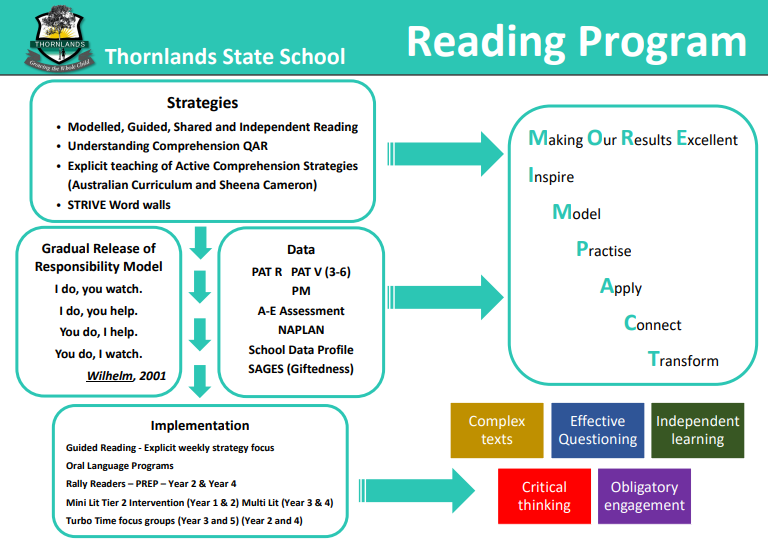
Our teachers explicitly teach and utilise the Sheena Cameron Reading Strategies during Modelled, Shared, Guided and Independent reading in the classroom and expose students to the language of: Activating Prior Knowledge, Predicting, Self-Monitoring, Making Connections, Questioning, Inferring, Visualising, Summarising and Synthesising. By using these strategies, students have a toolbox of skills to become confident and successful readers.
Our Rally Readers program also incorporates this focus, commencing again this year with all students from Year 1 to Year 4 participating in small group reading sessions with our Rally Reading teachers.
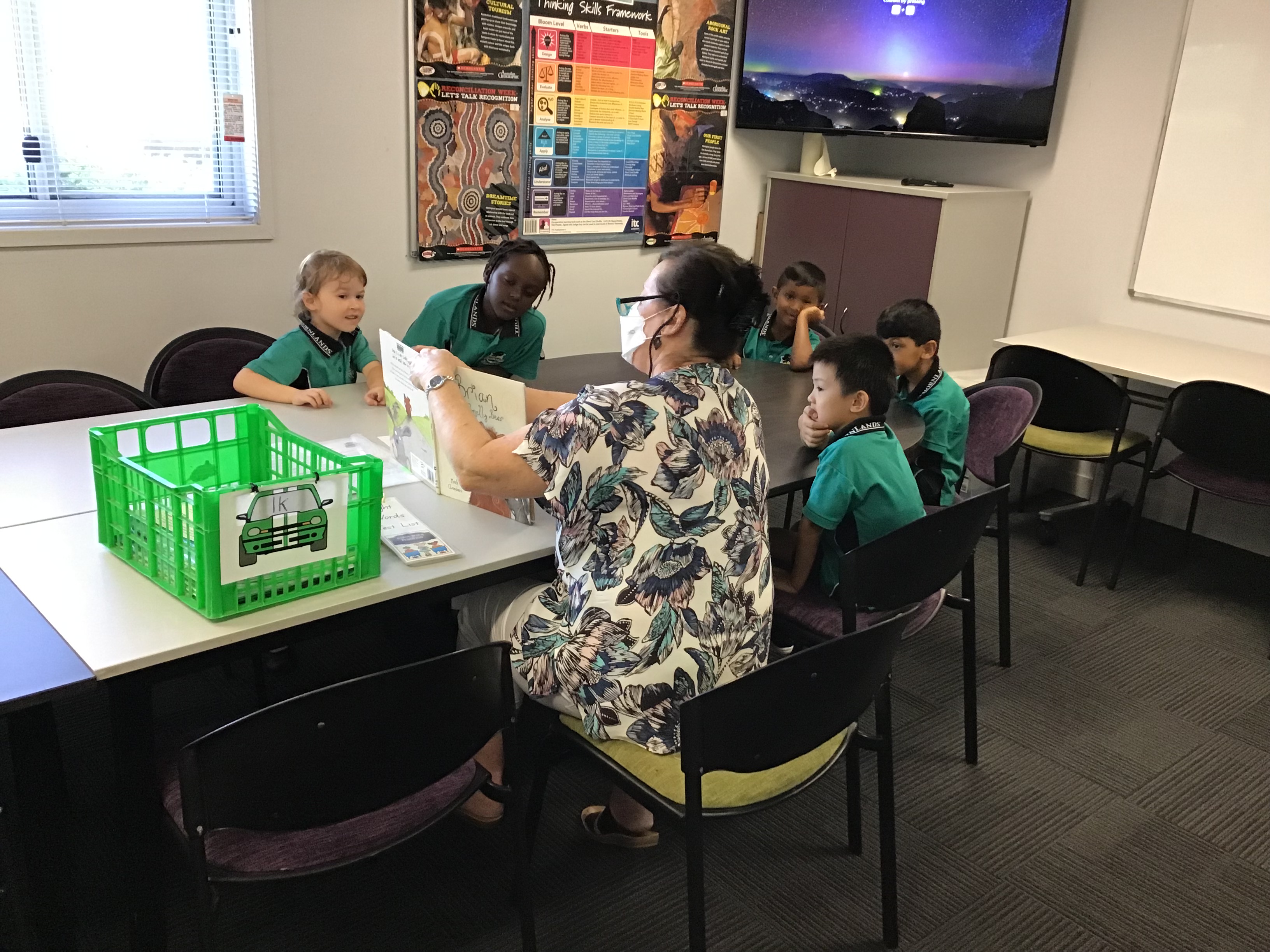
The Thornlands Reading Program has proven to be a successful approach as highlighted in our outstanding 2021 NAPLAN Reading results. We are positive that with our students' and teachers' commitment to learning, we will continue to succeed into the years ahead. As expressed wisely by Dr Seuss, 'Reading can take you places you have never been before."'
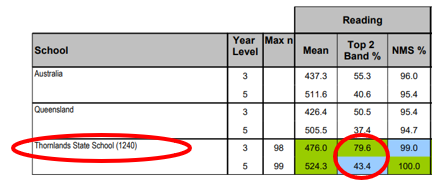
As we kick off the start of the year, our teachers have been very busy creating an inviting reading space for all our students to embrace, discover, learn and to get lost in the world of reading.
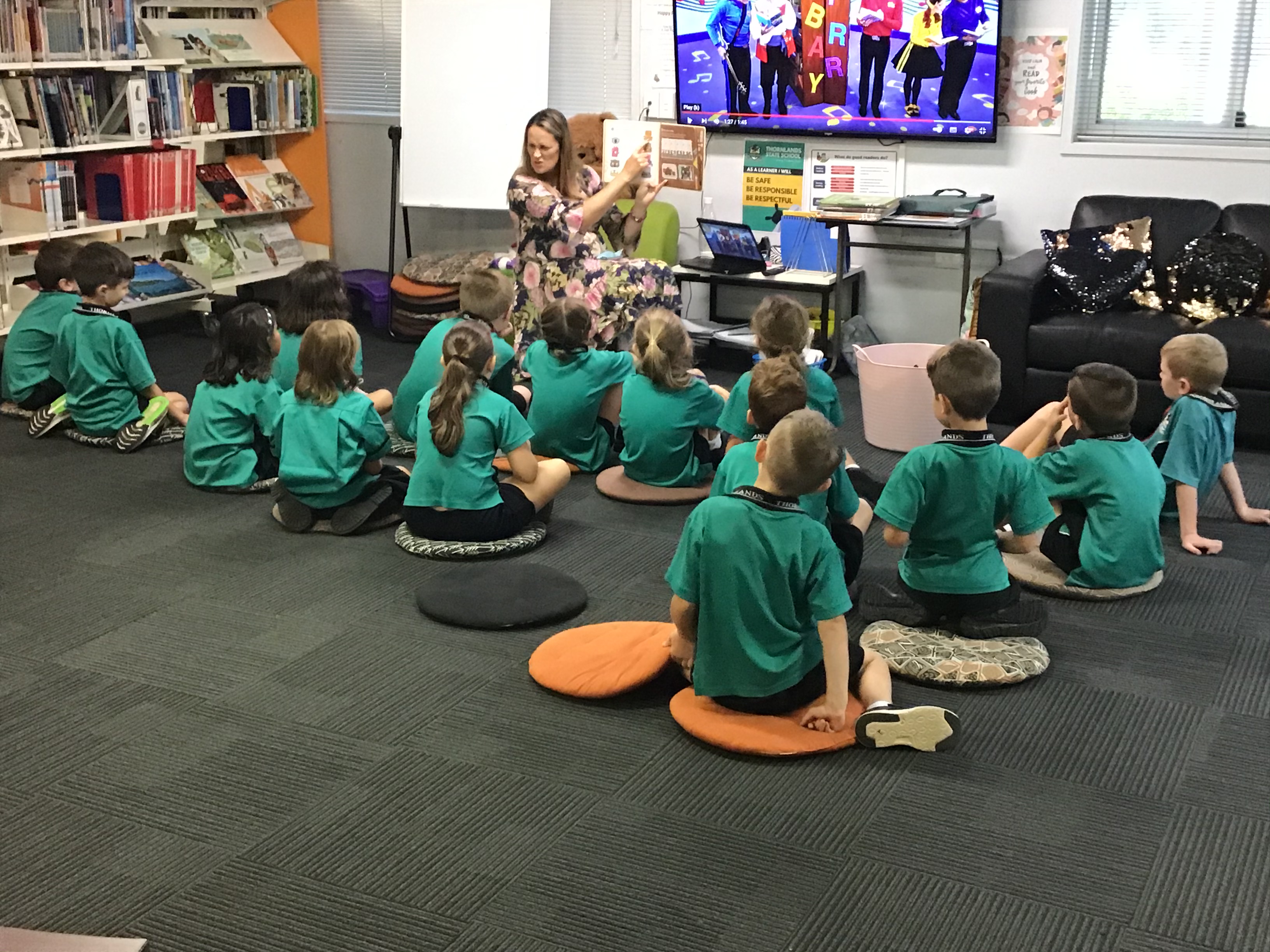
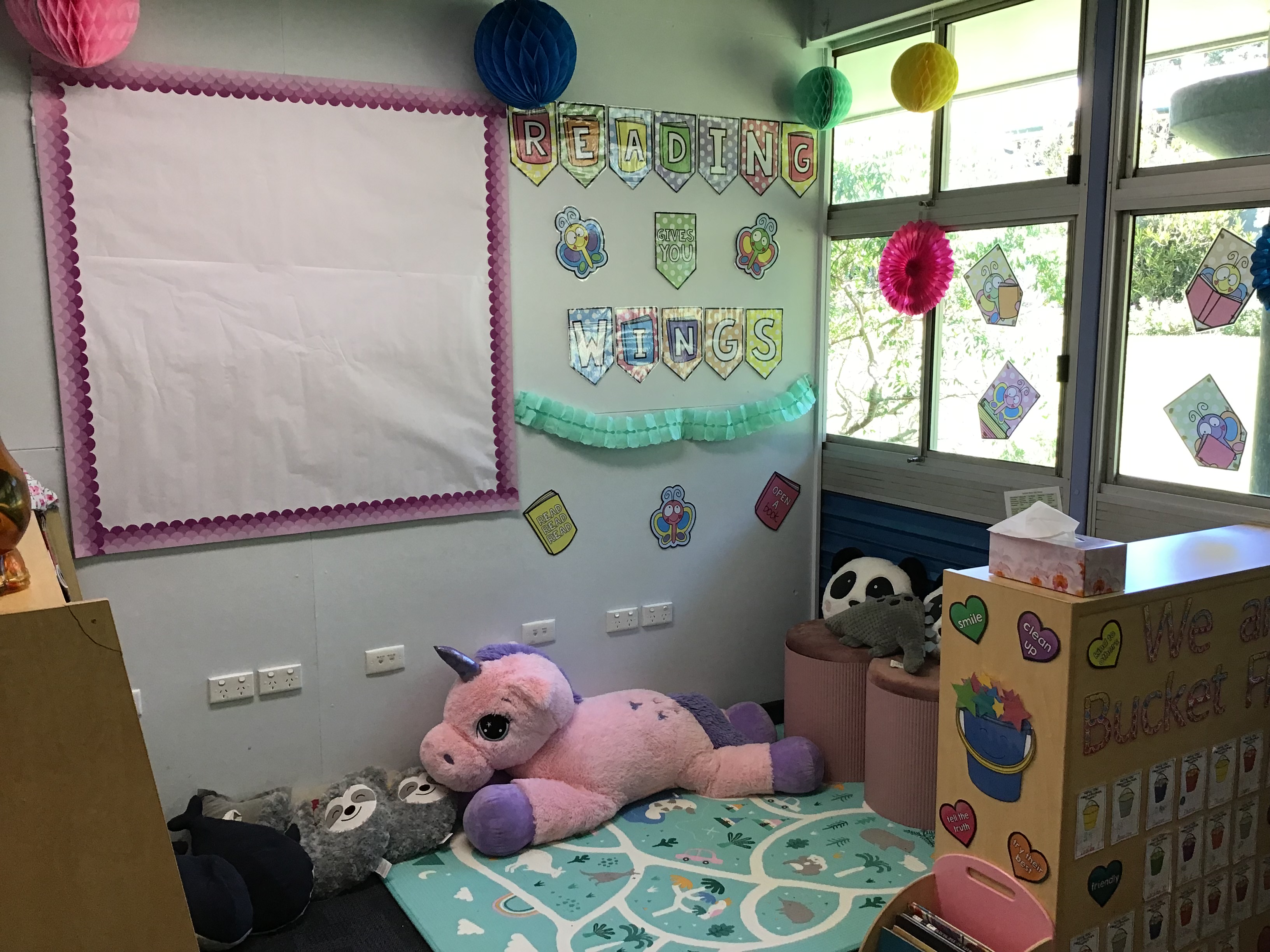
During this time, we have also continued our commitment to professional growth as teachers, having undergone professional development at the start of the year in the space of reading. Our focus this year is on the explicit teaching of Vocabulary. We aim to extend students' knowledge and understanding of Tier 2 words through explicit teaching to assist with the reciprocity of reading and writing. 'Research conducted reveals that vocabulary knowledge is the single most important factor contributing to reading comprehension', Laflamme, 1997.